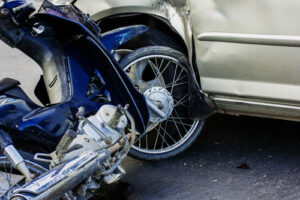
In most car accidents, someone calls the police. It could be one of the drivers, a passenger or somebody who saw the crash or its immediate aftermath. That 911 call often becomes evidence in a legal claim. What to do if the police crash report puts fault on you?
Typically, within minutes, a law enforcement agency arrives. One or more officers secure the scene. They block off traffic, take photographs and talk with the drivers and witnesses. They also collect driver’s license, registration and insurance information. Ultimately, one officer prepares the Officer’s Report. That report will indicate who was at fault for the crash.
You can – and should – order a copy of the Officer’s Report after you are involved in a crash of any kind in South Carolina. It’s easy. You can contact the agency who responded to your crash or get a copy through the mail. Check out the S.C. Department of Motor Vehicles website for details.
Here, we look at why fault is important in a South Carolina car accident claim. We also discuss how the Officer’s Report points to fault and what you can do if the report puts fault on you.
Why Is Fault Important in a South Carolina Auto Accident?
 Fault is the critical issue in a South Carolina car accident claim. If you can establish that another person was at fault for your crash, then you should be eligible to collect compensation for your injuries. In other words, you have established liability. However, if the other person establishes that you were at fault, it could cost you compensation.
Fault is the critical issue in a South Carolina car accident claim. If you can establish that another person was at fault for your crash, then you should be eligible to collect compensation for your injuries. In other words, you have established liability. However, if the other person establishes that you were at fault, it could cost you compensation.
South Carolina follows a rule called “modified comparative negligence.” Under this rule, you can still recover damages in a lawsuit even if you were partially at fault for an accident. Your damages would be reduced in proportion to your degree of fault. However, you would be barred from recovering anything if your fault exceeded the combined fault of all others involved in the accident. In other words:
- If your negligence is less than 51 percent, you can recover damages. Your damages are reduced in proportion to your degree of fault. For instance, if you are 25 percent at fault, your damages are reduced by 25 percent.
- If your negligence is 50 percent, you can still recover damages. Although you may be equally at fault, you can recover damages so long as your negligence does not exceed the combined negligence of the others.
- If your negligence is 51 percent or more, you would be barred from recovering anything – no matter how severe your injuries or steep your economic costs.
Because fault is so important in an auto accident claim in South Carolina, any determination of fault – even an officer’s initial assessment – can potentially play an important role in your ability to collect compensation.
What Does the S.C. Traffic Collision Report Say About Fault?
The South Carolina Traffic Collision Report Form contains many important details, including:
- Date, time and location of the crash
- Names of all drivers, passengers and pedestrians involved in the crash
- Driver’s license, insurance and contact information
- Injuries that occurred (including where the victims were sitting)
- Badge number and name of the investigating officer.
The report has no box where the officer checks off “fault.” However, it does contain a section with the officer’s description of the accident and a sequencing of events. It also has a box where the officer can check off different contributing factors such as:
- Disregarded traffic sign or signals
- Distracted/inattention
- Drove too fast for conditions
- Failed to yield right of way
- Fatigued/asleep
- Followed too closely
- Drove under the influence
- Aggressively operated the vehicle.
The Officer’s Report, in that sense, can assess who was at fault in the crash. However, this assessment is not the final word. The officer who prepares the report may be deposed or testify in a case, and the officer’s determination of fault may ultimately be challenged and debunked.
Can You Ask the Officer to Amend the Crash Report?
 South Carolina law allows the officer who prepared a crash report to amend it. So, if you review a copy of the Officer’s Report in your case and disagree with any aspect of it, you can contact the officer to request a change.
South Carolina law allows the officer who prepared a crash report to amend it. So, if you review a copy of the Officer’s Report in your case and disagree with any aspect of it, you can contact the officer to request a change.
However, practically speaking, an officer will not likely amend a crash report unless the mistake is a clear and obvious one, and you can prove that it’s an error. For instance, you may claim that the officer listed the wrong person as the vehicle owner, and you present a title to back up your claim.
Generally, you should not expect an officer to change contributing factors or any other part of the report which points to fault. Those are the officer’s judgment calls – not facts that you can ask the officer to correct.
Can You Still Sue If the Report Says You Are At Fault?
You can still pursue compensation after a car accident even if the officer’s crash report puts fault on you. Again, the officer’s assessment is not the final determination. Your lawyer may collect evidence and input from experts that reveals a much different picture of who was at fault.
The investigation is important. It gets to the facts. Your lawyer should collect and analyze crash scene photos, vehicle inspections, witness interviews and electronic data such as cell phone records and black box data.
Your lawyer may also consult with experts in areas such as engineering, traffic safety and accident reconstruction. An expert can examine all of the evidence and give an educated opinion of what happened in a crash and who was responsible for it.
By preparing a strong case on your behalf, your lawyer should have leverage in settlement negotiations with the insurance company – regardless of what the police report says. If the insurance company refuses to accept liability and/or offer full and fair compensation, then your lawyer’s strong case preparation can also make a difference in the courtroom.
Our Rock Hill Car Accident Attorneys Are Here to Help You
If you were recently involved in a crash in Rock Hill, Fort Mill or a nearby community in York, Lancaster or Chester counties, contact McKinney, Tucker & Lemel, LLC, for immediate help. We have a history of helping car accident victims and their families that traces back nearly 40 years. We will put that experience to work for you. Call or reach us online today for a consultation.
